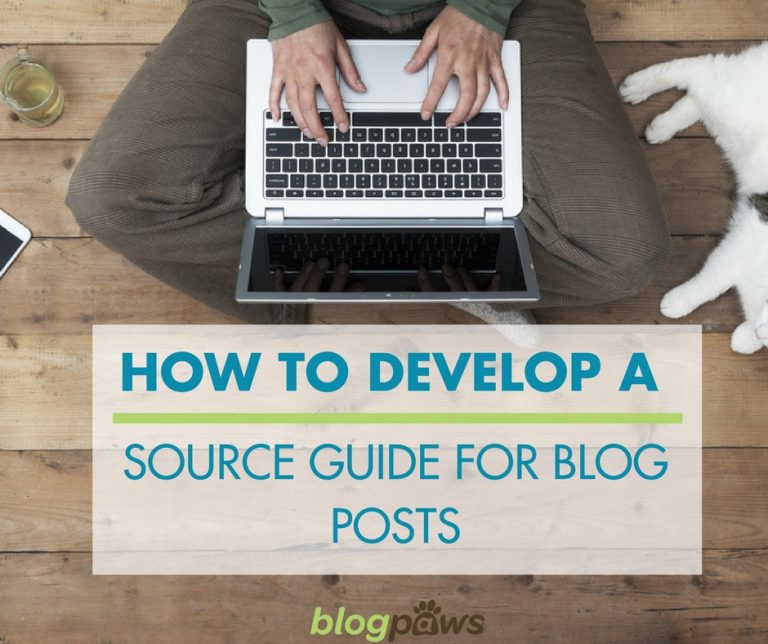Freelancing 101: Know How & When To Say ‘No’
What is one of the best words a freelance pet blogger can learn to use? “No!” Well, you don’t have to shout it, but you should learn to say it. Why? Because not every opportunity is a good fit. Because not every request is something that fits in with your business’s mission or vision. Frankly, because not every opportunity makes your heart sing. Money is good and goodness knows I need it to keep my pets in clothes, crickets, and carrots, but if a project makes you feel icky, then just say “no.”
Know how and when to say no because it’s a valuable word if you want to soar in your freelance efforts. Think of learning to say no as your freelancing superpower!
It’s not easy to say no to projects, especially when you’re just starting out or when you have lost a big client. Believe me, I know. Been there. Done that. Ate Ramen because of it. There are times when saying no is necessary to both your business growth and your sanity. Yes, saying no can lead to business growth. How? It seems inevitable, to me at least, that when I say no to something, a better (i.e. more lucrative) project comes along.
Here are some tips to help you know when to say no:
I don’t have a good feeling about this.
If you’re having a first meeting with a client and you just have a nagging feeling that it won’t be a good fit, chances are it won’t. Listen to your intuition. Here are some red flags to watch for:
- The client wants you to work “on spec.” If you have a blog and a following you don’t need to work on spec. Your work should speak for itself. Working on spec, many times, is what newbies will do and in some cases it’s necessary. If you’re established, then just say no.
- You’ve heard through the grapevine that a potential client is difficult, demanding and not easy to please. Sure, there could have been a personality conflict and not everyone “clicks.” But if you’ve heard from more than one person that a potential client is difficult. Listen to them. Just say no.
- Your client is requesting the impossible. For example, “I want to grow my Facebook following by 1,000 a month…” but there is no strategy behind it or no real reason other than wanting the numbers. Just say no. If they want to be on every social media site and have a blog and send out weekly press releases but don’t have a content strategy. Just say no. It’s doomed to failure.
Mission impossible.
Getting involved in a start-up is not a bad thing. Many start-ups go on to be wildly successful so I am on board with a start-up that I believe in. What I am not on board with is a client asking the impossible. What are some of those missions impossible?
- Any project that seeks an impossible solution. “I want to grow my Facebook following by a 1,000 a week and make $10,000 in sales because of it.” Where’s the strategy?
- A project that falls below the hourly rate you typically charge. Even though you don’t have to quote an hourly rate to a client, you do need to have one in mind when you price out a project.
- If you’re going to be embarrassed to tell people you’re working on a project. Just say no.
- If the project comes with an impossible-to-meet deadline. “I’d like a new website built, twenty blog posts written and dozens of social media updates done… by 5 pm today.” Just say no.
- If a project is outside your area of expertise and you don’t have a source upon whom you can call to help with the project. Just say no. Don’t put your reputation on the line saying you can design a logo, for example, if you have never done so.
You want me to do what?!
There are certain clients that you will want to run away from. Run far. Run fast.
- Clients who want you to do something that is unethical.
- Clients who have bad reputations, either for how they treat staff members or how they treat customers.
- Someone for whom you worked previously that didn’t pay you. Once bitten… and all.
- Clients who want to pay you for “performance.” If your “blog posts perform to XYZ level, then you will earn XYZ dollars.” Um, no.
- Clients who have scope-creep. You were hired to write blog posts for X dollars. But now the client wants you to share those posts on social media. Then she wants you to make graphics that can be shared on Pinterest. If more projects are being added on, you need to take a step back and renegotiate. If the client doesn’t want to, then stick with your original project and just say no to the rest.
Saying no for your own sanity.
- Ohhhhh how I want to take on that project, BUT it would mess up the family vacation. What do you do? Just say no!
- You would have to push off the work for your ideal client to take on a new project. Nurture your current clients and ask the new client if the deadline can be adjusted.
- If you’re asked to compromise your beliefs in order to take on a project, then just say no. If, for example you have a particular bias against something, don’t be a hypocrite and take on that project – your friends and colleagues will call you on it.
How exactly do I say no?
I’ve given you some food for thought on why and when to say no, now you probably wonder how to say it. Yes, the word is only two words, one syllable long, but it can seem like a mouthful when you actually have to utter it.
How can you just say no?
- No, thank you.
- I just don’t have time right now, but let me introduce you to a colleague who may be able to help.
- That doesn’t fit into my business plan. (Hint, you need to have a business plan in order to use this one)
- That doesn’t fit into my skill sets, but I have a colleague I can introduce you to who might be able to help.
- Thank you so much for asking, I can’t do it now, but please keep me in mind for future projects.
Bottom line.
Saying no isn’t easy. Saying no is downright difficult if not near impossible to say, especially when you’re first starting out. The compunction is to say yes to everything just to get the cash flowing in. Who knows, it may work for you in the beginning but you run the risk of being thought of as a “generalist” and chances are you will make more money and be better able to target clients when you are a “specialist.”
Know what you want to do. Understand who your ideal clients are. Learn to say no.
Is there a project you said no to? Why? Did you regret your decision or was it one of the best you’d made for your business?
Robbi Hess will be speaking on Time Management For The Blogger at the BlogPaws 2016 Conference. She is an award-winning author who works with clients on time management issues as well as content creation and content strategy at All Words Matter.
Image: Renata Apanaviciene/Shutterstock.com






